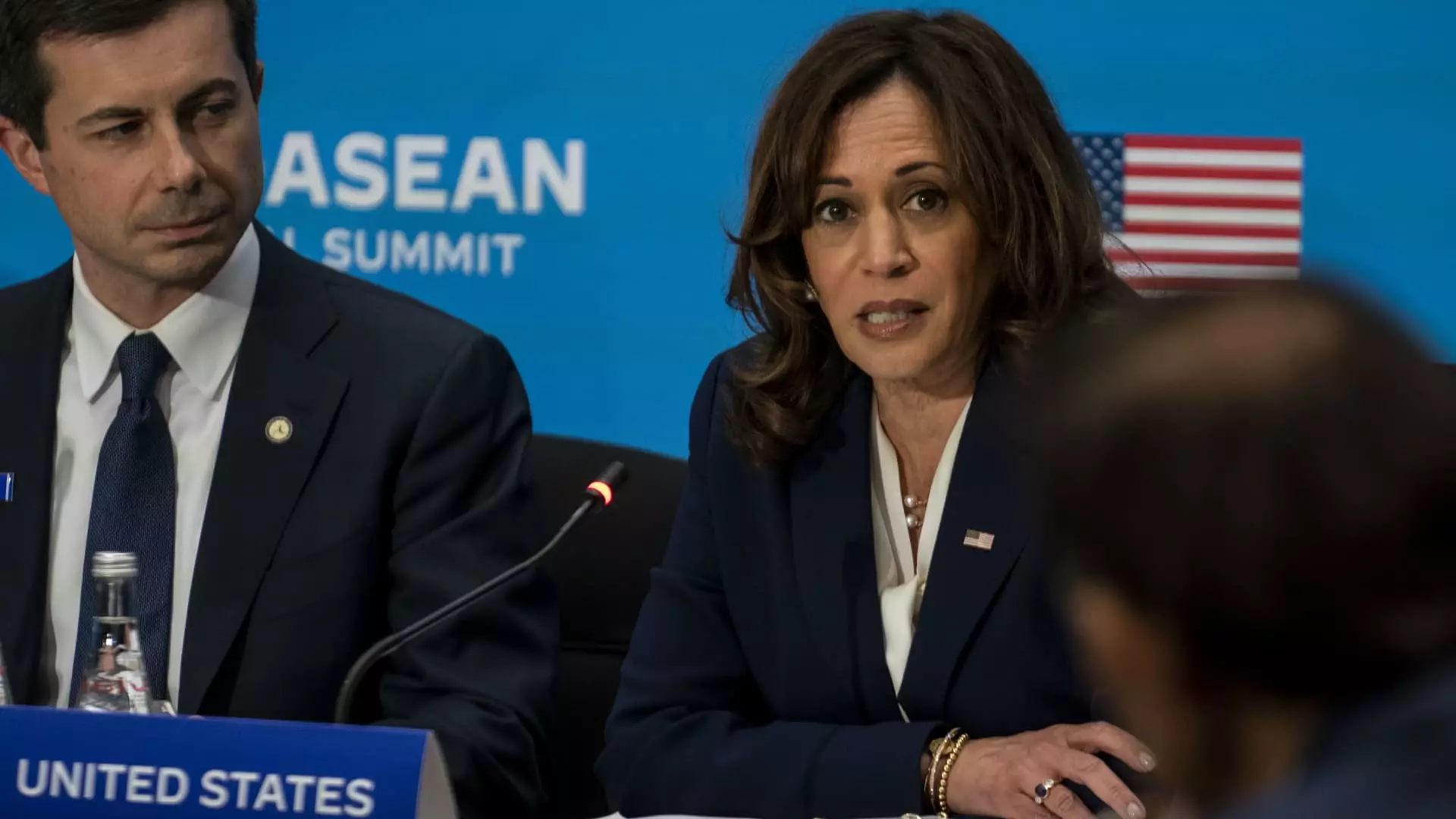Vice President Kamala Harris is set to embark on her third trip to Southeast Asia, attending an international summit in Jakarta, Indonesia. This visit comes at a crucial time for the United States, as doubts have arisen about its commitment to the region due to President Joe Biden’s absence. Harris has positioned herself as a key interlocutor for the Democratic administration, aiming to strengthen partnerships and counter Chinese influence. However, Biden’s decision to skip the Association of Southeast Asian Nations (ASEAN) has caused frustration and raised questions about the organization’s relevance.
Harris’ repeated visits to Southeast Asia and her focus on building alliances in the Indo-Pacific region have solidified her position as a key player in the Biden administration’s foreign policy strategy. As the oldest U.S. president in history, Biden’s absence at the ASEAN summit has drawn criticism from some Republican candidates, who argue that Harris is unprepared to step up in the event that Biden is unable to complete his term. Despite these attacks, White House national security spokesman John Kirby emphasized Harris’ dedication to strengthening alliances and partnerships in the Indo-Pacific region.
While ASEAN represents an alliance of 10 nations with a collective population of over 650 million people and the world’s fifth-largest economy, it grapples with numerous challenges. The organization has failed to resolve the civil strife in Myanmar following a military coup, leading to the country’s disinvitation from meetings. Negotiations over territorial claims in the South China Sea have also stagnated. Additionally, there are internal disagreements among ASEAN members regarding the global competition between the United States and China. While some nations, such as the Philippines and Vietnam, seek closer ties with Washington, others, like Cambodia, remain aligned with Beijing. This struggle to assert its relevance has led ASEAN to reflect on its effectiveness and the necessity of strong leadership attendance at its summits.
Kirby dismissed the notion that Biden’s absence suggests a lack of commitment to ASEAN or the region. He highlighted the fact that Biden had previously hosted the first Washington summit with ASEAN leaders and emphasized the administration’s continuous efforts to engage with Southeast Asian countries. However, the proximity of Biden’s visits to India and Vietnam during the ASEAN summit has made his nonattendance more noticeable. Indonesia’s former foreign affairs minister, Marty Natalegawa, acknowledged ASEAN’s struggle to convince world leaders of its central role in the region. Natalegawa believes that unless ASEAN becomes more effective, leaders may continue to decline attendance at its summits.
While Biden’s absence may have disappointed some, Harris’ presence at the ASEAN summit is seen as a step to demonstrate U.S. attention and engagement. Ja-Ian Chong, an associate professor of political science, argued that sending the vice president helps cover the administration’s bases and signifies that the U.S. is actively involved in the summit, even if meaningful progress on key issues is unlikely. Harris is expected to participate in summit events, engage in individual talks with foreign leaders, and use the opportunity to find common ground and foster partnerships in the region.
The current geopolitical context surrounding the South China Sea adds urgency to U.S. efforts to strengthen partnerships in Southeast Asia. Beijing’s release of a new official map emphasizing its territorial claims in the region has heightened tensions among neighboring countries. The South China Sea serves as a critical crossroads for global trade, making it imperative for other nations to counter China’s aggressive approach to the region. The U.S. sees an opportunity to forge stronger partnerships in response to Beijing’s actions.
While Biden has been occupied with the Russian invasion of Ukraine, he has consistently identified China as the top foreign policy challenge for the United States. He views Beijing’s rise as a potential threat to U.S. global influence and emphasizes the need to deter China from becoming the dominant global power. Biden’s agenda, both domestically and overseas, reflects his commitment to maintaining U.S. supremacy and countering China’s economic and military might. His upcoming visits to India and Vietnam further highlight his focus on strengthening ties with countries that have emerging economic power.
Harris’ Role in the Rivalry with China
Harris’ previous visits to Singapore, Vietnam, Japan, South Korea, the Philippines, and Thailand have been centered around the U.S.-China rivalry. She has condemned China for challenging freedom of the seas and using its military and economic prowess to coerce its neighbors. During her visit to Palawan, an island adjacent to the South China Sea, Harris pledged support to the Philippines in the face of Chinese intimidation and coercion. By engaging with countries in the region, Harris aims to reinforce the U.S. commitment to its allies and partners, especially in light of China’s assertive actions.
Vice President Kamala Harris’ outreach to Southeast Asia underscores the U.S. administration’s efforts to strengthen partnerships in the Indo-Pacific region. While President Biden’s absence at the ASEAN summit has caused frustration, Harris’ presence demonstrates the U.S. commitment and engagement with Southeast Asian countries. ASEAN’s struggles to assert its relevance and resolve key challenges highlight the need for effective leadership and international support. As tensions rise in the South China Sea, the U.S. sees an opportunity to forge stronger partnerships and counterbalance China’s influence. Harris’ visits to various countries in the region have solidified her role as a key interlocutor in the U.S.-China rivalry. Overall, the U.S. aims to demonstrate its dedication to upholding freedom, stability, and prosperity in Southeast Asia amidst evolving geopolitical dynamics.


Leave a Reply